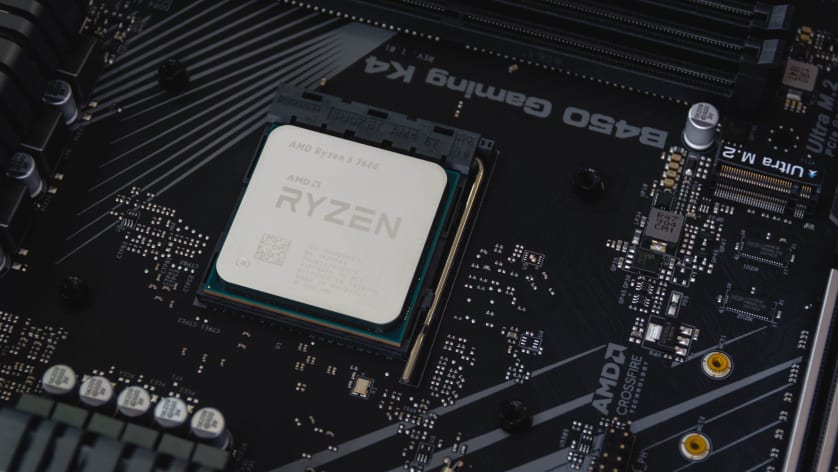Will Quantum Computers Replace Their Classical Counterparts?

While classical computing isn't going anywhere, quantum technology has the potential to disrupt many industries. To fully unlock quantum's potential, it is important to take advantage of the strengths of both.
Quantum computing could help us develop lifesaving drugs more quickly, build better investment portfolios, and create more secure cryptography. Does that mean quantum computing will become the standard?
Quantum computers have certain limitations which mean they are not able to surpass classical computers.
In addition to this, quantum computers must be kept at temperatures close to absolute zero, or -270 degrees Celsius/-450 degrees Fahrenheit. It is not advisable for the average consumer to have a powerful refrigerator at home because of the corresponding energy consumption and its impact on the environment. It is unlikely that quantum computers will become a staple in most homes.
It is more likely that researchers in academia and industry will access quantum computers through cloud services. Although quantum technology is still in its early stages, providers like Amazon Web Services and Microsoft Azure already offer cloud access to it.
There is no question that quantum computing will revolutionize many industries in the next decade. That said, classical computers will always have a role to play. As with anything, though, the devil is in the details: Which problems are better suited to quantum computers, and which to classical computers? And which industries will see the greatest benefit from adopting a hybrid quantum-and-classical computing strategy?
Quantum Won’t Replace Classical Computers
Although quantum computing has existed since the early 1980s, there are only a few dozen of these devices in the world today. The quantum advantage, or that quantum computers are a lot faster than classical computers, was only recently demonstrated in 2019 by Google.
It is difficult to store data and operate quantum computers at room temperature, which is why there are not more than 5,000 of them. Quantum computing is different from classical computing, and will take time to develop and deploy.
Classical computations are simple- you provide an input and an algorithm processes it to give you an output. Quantum computations, however, take a range of different inputs and return a range of possibilities. Instead of getting a single answer, you get an estimate of how probable different answers are.
Quantum computing can come in handy when you have to deal with a lot of input variables and complex algorithms—tasks that would normally take classical computers quite some time to complete. By narrowing down the range of possible input variables and solutions to a problem, quantum computers can provide a straightforward answer by testing the range of inputs with a classical computer.
Quantum computers are not yet advanced enough for widespread adoption, and classical computers can provide more straightforward answers that we prefer.
Technical Limitations of Quantum Computing
We must remember, though, that this way of working hasn’t been put to the test yet. With quantum technology still in its infancy after four decades of work, there are some quite tricky limitations to get around. These limitations will ensure classical computers remain relevant.
Quantum computers store and process information in units called qubits. Like bits in classical computers, qubits can have different values- like zero or one. Quantum computers have an important advantage over classical computers because they can perform multiple calculations at the same time. While a classical computer can only do N calculations at once, a quantum computer can do 2^N calculations. Therefore, if a classical processor manages 10 calculations, a quantum processor would manage 1,024 calculations.
The main problem with quantum computers is that they are difficult to build with a large number of qubits. Larger quantum computers usually have lower connectivity, which means that the qubits can't communicate with each other as well. This lack of connectivity lowers the system's overall computing power.
Quantum errors cannot be avoided, so many resources are being put into developing ways to detect and correct them. While a lot of progress has been made in this area, it is unlikely that quantum errors will ever completely disappear. Even with highly accurate quantum computers, verifying the output with classical computers will remain necessary.
Waiting on Disruption
The technical limitations of quantum computing and the supercool temperatures necessary for storing hardware are two of the reasons why most companies are hesitant to invest in quantum computing as of now. In certain industries, a quantum computer might become economically feasible even if it solves a problem "only" 1,000 times faster than a classical computer. These industries include finance, pharmaceuticals, and cryptography.
Companies are likely to adopt quantum systems slowly as they become more economically advantageous. Classical computers will still be needed during this time to keep things as they are. Not many companies will want to invest heavily in these early days of quantum computing, meaning that classical computing will still do most of the work in industry.
On the other hand, significant investments, despite how risky they might appear at the moment, have the potential of becoming the motivating factor behind true innovation in the usage of quantum computing. This is especially notable in two industries: pharmaceuticals and cryptography. These areas depend heavily on access to enormous computational resources, which quantum machines could provide to them in novel ways.
Where Quantum Will Thrive — and Classical Will Help
While all industries may not benefit equally from quantum computing, there are still areas where it could have immense long-term gains according to McKinsey. Classical computing will remain relevant in these areas, despite the advantages of quantum technology.
Computational simulations of drug molecules are essential for cutting costs and time, sometimes dramatically. Proteins often have thousands of constituents, so companies interested in them need to manufacture and test them in real life for accurate results. Quantum simulations could help reduce the costs of drug development and bring drugs to the market faster.
Optimization Problems:
What is the best way to deploy vehicles to ensure an efficient transportation network? What is the best investment strategy for optimal returns in five, 10 or 30 years? Quantum computers could be used to significantly narrow down the possibilities in various sectors, from manufacturing to finance. Then, classical computers could be used to get more straightforward answers.
Quantum Artificial Intelligence:
Billions of dollars are being invested in autonomous vehicles with the aim of making them smart enough to navigate busy roads anywhere on Earth. Accidents are still a problem, even though many talented people are working on training AI algorithms to drive. Quantum AI, which is much faster and more powerful than current methods, could help solve this problem. The benefits of quantum AI might only be reaped in a decade from now, however, since quantum AI is a lot less developed today than quantum simulation or cryptography. Therefore, the majority of AI algorithms will continue to be deployed on classical computers. It is possible that most AI will be quantum in a few decades.
Cryptography:
Today's security protocols make use of random numbers and number factorization at levels which classical computers can compute to generate passwords, but seldom solve in order to crack a password. In a few years though, quantum computers might be so powerful as to be able to crack any password. Quantum technology presents a double-edged sword in the sense that it will not only break every password but also be able to generate new, unbreakable cryptographic keys. Companies have already started securing their data on classical computers using quantum-safe cryptography, which is possible thanks to recent advances in the field.
Preparing for a Quantum Future
These companies need to follow the footsteps of Barclays, BASF, BMW, Dow and ExxonMobil, which are already active in quantum technology.
Obviously, not every sector will benefit equally. For instance, sectors like pharma, finance, travel, logistics, and global energy and materials may profit earlier than others. Consequently, players in these fields need to gear up swiftly if they don’t want to be left behind by their competitors.
Companies in these industries should follow the lead of pioneers such as Barclays or ExxonMobil, and build an in-house team of quantum talent if it makes strategic sense to do so. With the current scarcity of talent, and the expanding demand, it is unlikely that universities will be able to keep up. A possible solution for them would be to partner with companies developing quantum technologies; this could give them a competitive advantage later on.
It is evident that these companies will not discontinue the use of classical computers; rather, quantum computing will provide them with great advantages for specific tasks, such as drug development and financial engineering, to name a few.
Some companies will thrive as quantum technology advances, while others will need to take precautions to prevent themselves from being harmed. From aerospace engineering to pharmacological development to socioeconomic data for market research, a variety of sectors need to be concerned about quantum attacks in the future and take steps to prevent them.
To sum up, companies in different fields need to get ready. Some will benefit from quantum if they adopt it, while others will need to move ahead of the threat. Companies that don't embrace the power of this new quantum-classical hybrid risk being left behind.
Quantum computers will not take over the world, but they will have a significant impact in the next decade or two.













